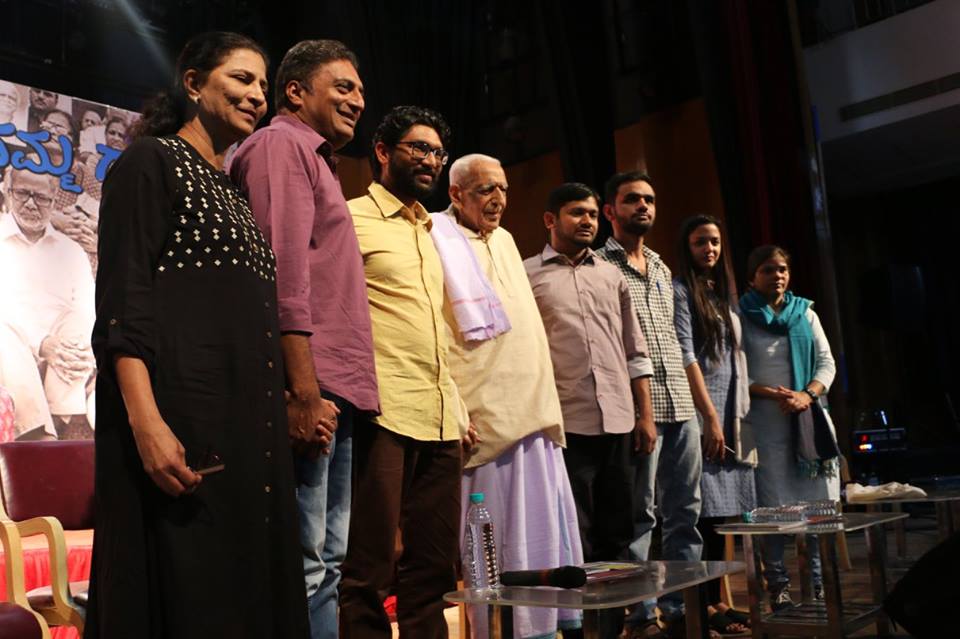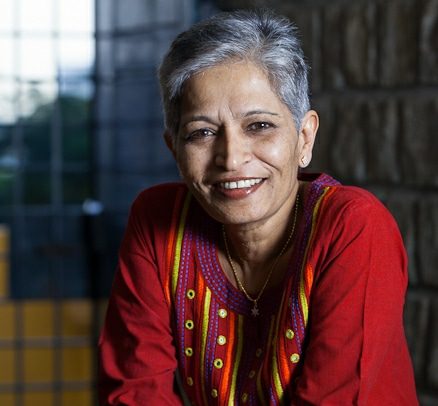An election and the long shadow of Gauri Lankesh
When Karnataka goes to polls on May 12, it will have been eight months and seven days since unidentified killers gunned down a slight, 55-year-old woman at her doorstep in suburban Bangalore. In her last editorial column for her weekly newspaper, Gauri Lankesh had talked about the menace of fake news (where she admitted to sharing a piece of fake news herself). Her writings, particularly in the last few years, had consistently run afoul of powerful right-wing forces, resulting in several lawsuits against her, and finally, in 2016, a conviction in a defamation case filed by two BJP leaders.
In a landscape historically divided sharply along communal and caste lines, Lankesh was trying to put across the difficult message of reconciliation and responsibility as the means to attaining the larger goals of harmony and social justice. She crossed the line between journalism and activism often enough, and for all practical purposes, believed it was quite okay to be a journalist and an activist at the same time. In a different time, her stand could probably be discussed and debated without bringing up questions of partisan politics at all, but in the communally charged atmosphere in which she spent her last few years, it became inevitable that every word and action of hers would be seen in relation to the politics espoused by the party that was not only a major force in Karnataka, but also in power at the Centre. And as it happened, her stand was almost always diametrically opposed to theirs.
It was not a surprise, therefore, when her first birthday (on January 29) after her death became an occasion to consolidate the opposition against the BJP in Karnataka and beyond. In the ‘Gauri Day’ event held at the Town Hall in Bangalore, national-level student leaders like Kanhaiya Kumar, Richa Sharma, Umar Khalid and Shehla Rashid, and the newly elected Dalit leader from Gujarat, Jignesh Mevani, came together with freedom fighters, communal harmony promoters and grassroots activists from Karnataka, with the participative support of Lankesh’s mother and sister (her brother is known to be close to the state BJP leadership and stayed conspicuously away). Her friends, actor Prakash Raj among them, along with several writers, journalists and other known faces of the intelligentsia, were also in attendance. The implication of this January gathering on the assembly elections barely four months away was duly noted.
For much of April, Jignesh Mevani, Dalit activist who fought and won as an independent candidate from Vadgam in the Gujarat assembly elections in December 2017, has been holding meetings across the state, exhorting people, especially the backward classes, to vote against the BJP . Prakash Raj, a star not only in the South, but also in Bollywood, thanks to films like Singham and Dabangg 2, has been making strong statements against the BJP and Narendra Modi on television debates, and travelling across Karnataka asking people to reject the BJP and its brand of politics. What connects these two, apart from their clear opposition to saffron politics, is that they are not affiliated to any party, nor do they have any direct stakes in who comes to power in the state.

But observers of Karnataka politics feel that what made these two take up active role in the pre-election scene was, in fact, Gauri Lankesh, or, more precisely, her killing. One of Lankesh’s ‘adopted children’, Mevani had a deep personal friendship with her that became his link to many citizens’ movements in Karnataka, and one of the possible reasons why his crowdfunded election campaign saw a sizeable sum coming from the state. Every speaking opportunity Mevani chooses in the state, is, by his own admission, an attempt to pay off the emotional debt to Lankesh.
In the case of Prakash Raj, the murder of Lankesh, his friend for over three decades, was in some ways the inflection point that made him break the unwritten rule that film stars in India seem to follow – speak about social issues if you must, but without naming or implicating any political party. From Karnataka BJP leaders like Ananthkumar Hegde to Union ministers like Babul Supriyo and the prime minister himself, Prakash Raj has named BJP leaders and pointedly criticized their actions, earning himself the ire of the party’s followers in the process.
It has been nearly eight months since Lankesh’s murder, the shock of which had brought non-politically-active citizens out on the streets in volumes rarely seen in the recent past. And for all the popular outrage, a single arrest is all that the Siddaramaiah-led Congress government has achieved so far, and that too without a solid case to go with it. And so, with less than a week to go to the polls, the BJP – whose leaders were always at crosshairs with Lankesh and some of whose supporters were seen celebrating her death on social media – is happily scoring brownie points accusing the government of failing to nab her killers, while the Congress can weakly refer to her lifelong disdain for right-wing politics in the absence of anything concrete to show on the ground.
As political parties get back on their familiar planks of caste and religion, one wonders whether Gauri Lankesh, like MM Kalburgi, Govind Pansare and Narendra Dabholkar before her, was just another idealistic individual at the wrong place at the wrong time.
Pradeep KP’s film, ‘Namma Gauri’ (Our Gauri)

